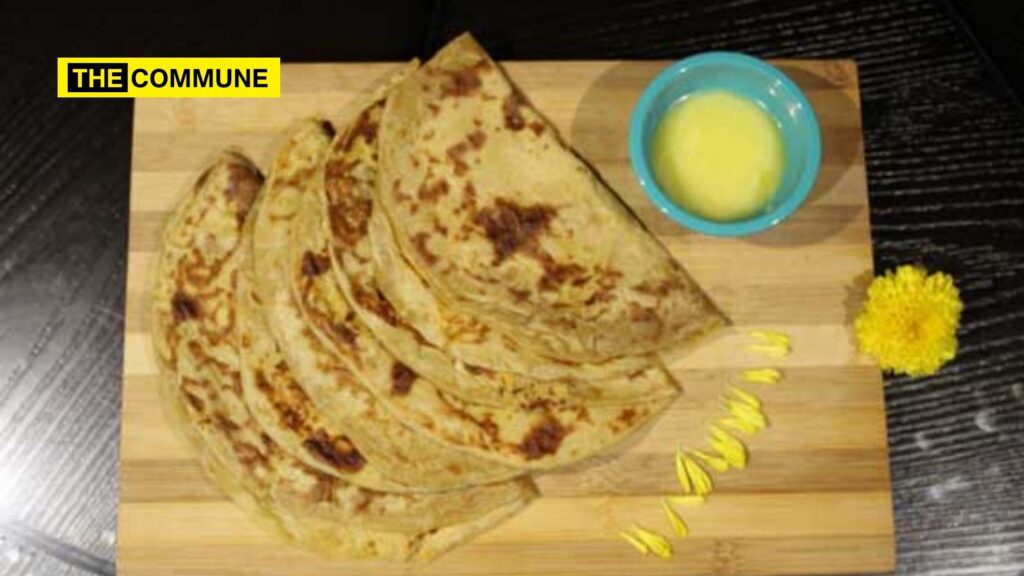The festival of Ugadi, which marks the beginning of the Hindu New Year in southern states such as Karnataka, Andhra Pradesh and Telangana, was celebrated on April 13 this year. In several households, it is customary to prepare sweet dishes on the festive day, including the famous holige. Also known as obbattu, holige is a thin pancake made from flour, stuffed with dal, jaggery and coconut, and slathered with ghee on top.
As the preparation and process of making holige is time-consuming and requires an experienced hand, many families, to satisfy their sweet tooth, buy their holige from iconic outlets that prepare the dish using traditional recipes. Some of the best stores that make the sweet dish are located in Bengaluru, Karnataka.
However, with several people now making a switch to healthier lifestyles, the demand for this mouth-watering dish, which is packed with carbohydrates and sugars, has reduced.
To keep up with changing trends, Bhat’s Holige Mane, a 35-year-old shop located in a small lane of Bengaluru’s Ramakrishna Nagar, makes healthy versions of holige. Here, the dish is made using multigrain atta instead of maida, organic jaggery instead of sugar, and zero preservatives.
“While we also make the traditional type of holige, five years ago, we noticed that customers were curious to know if we had a sugar-free version or a millet-based version. They wanted to eat traditional sweets, but stay healthy at the same time. So we took up a challenge to make holige from atta instead of maida,” says Srinivas Bhat (55), the second-generation owner of the store.
In 1986, Srinivas’s father Ramachandra Bhat migrated from a small village in Sringeri to Bengaluru to work as a chef. According to Srinivas, his father learnt cooking from his mother while growing up. He adds that Ramachandra was well-versed in making all kinds of south Indian dishes, especially sweets.
While working as a chef in one of Bengaluru’s hotels, Ramachandra had the opportunity to cater for a large event. During this event, he prepared fresh holige to serve the guests, and the dish turned out to be a hit.
“Many people praised the holige he made, and he received many more orders. He realised there was a demand for homemade holige, which prompted him to start a business from home,” says Srinivas, adding that the family continues to work out of the same outlet, and has neither relocated nor opened a second outlet.
Ramachandra launched the business by making two varieties of holige. One was filled with coconut and jaggery, the other with split yellow gram. With help from another person, he would make fresh ones every day, package them and distribute them to sweet stalls in the city. Apart from that, he would also cater to private orders including weddings.
As a young boy, Srinivas would watch his father make fresh holige every day, and even learnt the preparation method from him. As he grew older, he started helping his father with the business every day. However, he did not join full-time and went on to complete his education.
“After undergraduation, I worked with Mysore Lamps for 17 years until the company shut down. I did not look for any other job but decided to join my father in the business from 2001,” says Srinivas, adding that he not only helped his father expand business through new clients but also introduced three new varieties of holige.
In 2016, to cater to health-conscious consumers, Srinivas experimented with multigrain atta and coconut filling. Instead of adding sugar as a sweetener, he used only organic jaggery. It took him a few tries but he managed to get the consistency and taste similar to the regular one. Apart from this, he also made two other varieties, which were stuffed with dates and dal.
Though he was innovative, with growing competition, he needed to market his products online to stay in business. Two years ago, with help from his niece, Savitha BS, who works as an SEO analyst, Srinivas launched a website. “Not only did she create the website, but she also handles the orders and deliveries,” says Srinivas.
Savitha says she noticed a spike in their business after it moved online.
“Through social media, we were able to create awareness about our products and scale up orders by 30%. In the last two years, we also received several enquiries for franchises, and orders from Chennai, Delhi and even the USA,” says Savitha, adding that shipping is limited only to cities located South of India. This is because holige has a short shelf-life, and the ones with coconut filling can spoil faster, due to hot weather.
In a perfect example of how to keep up with changing trends without losing authenticity, Bhat’s Holige Man’s traditional yet innovative variations have catered to thousands of customers over the years, and their delectable holige keeps several coming back for more.
If you wish to order Bhat Holige Mane’s mouth-watering sweets, visit their website.
With inputs from The Better India
Click here to subscribe to The Commune on Telegram and get the best stories of the day delivered to you personally.

